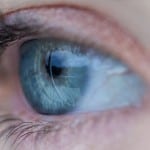Trauma Therapy Winter Park Awaits You!
Have you ever felt like the echoes of a traumatic event is holding you back, no matter how much you try to move forward? Maybe fear, anger, or sadness keeps resurfacing, leaving you feeling trapped in a cycle you can’t break.

Have you ever felt like the echoes of a traumatic event is holding you back, no matter how much you try to move forward? Maybe fear, anger, or sadness keeps resurfacing, leaving you feeling trapped in a cycle you can’t break.
Or perhaps a loss or betrayal has shaken you to your core, leaving you questioning your value and feeling empty inside. If any of this resonates with you, know that you’re not alone. Healing is possible, and it’s okay to seek support.
Trauma is more than just an experience—it’s something that stays with you, sometimes shaping your thoughts, emotions, and even your emotional reactions and actions in ways you don’t fully understand. You might feel overwhelmed by feelings of helplessness, sadness, anger, or even numbness.

At Total Life Counseling (TLC), we understand that trauma can leave deep emotional scars, but we believe healing is possible. With the right support and therapy, you can reclaim your life, find peace, and start your journey toward emotional freedom.
Traumatic events can include, but are not limited to:
- Domestic Violence: The emotional and physical scars can be long-lasting.
- Community Violence: Whether it’s an act of violence near you or in your community, the effects linger.
- Verbal Abuse: Harsh words can cut deeper than any physical wound, leaving lasting damage.
- Death: Losing a loved one creates an emotional void that can feel impossible to fill.
- Sexual Assault: Violations of your body and your safety can shatter your sense of trust.
- Physical Abuse: The toll on your body and mind can affect every area of your life.
- Natural Disasters: The emotional damage can be severe even if you weren’t physically hurt.
- Divorce: The end of a relationship can leave you questioning your worth.
- Loss: Whether a breakup or the end of a chapter in life, the grief can feel unbearable.
- Toxic Relationships: Constant emotional strain from unhealthy relationships can chip away at your well-being.
- Car Accidents: The trauma of an accident can leave both emotional and physical scars.
No matter what form your trauma has taken, it doesn’t have to define you. Trauma therapy Winter Park can help you understand, heal, and rebuild. At TLC, we’re here to walk alongside you, offering the support and care you need every step of the way.
Our Winter Park Anxiety Trauma Therapists Are Available Now Serving Longwood, Maitland, & Casselberry areas.
Winter Park Anxiety Therapy Overview
Learn about anxiety, common anxiety disorders and symptoms, and which anxiety treatment options are suitable for you.
In this section:
- What is trauma therapy?
- Individual Trauma and Therapy Sessions
- Benefits of Individual Trauma and Therapy Sessions
- Trauma-informed Care for Children, Adolescents, Teens, and Adults
- Benefits Trauma-informed Care:
- Cognitive Behavioral Therapy (CBT)
- Benefits of CBT
- Trauma-Focused Cognitive Behavioral Therapy (TF-CBT)
- Mindfulness-Based Stress Reduction (MBSR)
- Benefits of MBSR:

What is Trauma Therapy?
Trauma based therapy is a specialized form of trauma treatment that helps individuals address and heal from the deep emotional wounds caused by traumatic experiences and the effects of trauma.
Unlike general counseling, trauma focused therapy specifically targets various trauma therapy techniques designed to help you process your experiences and cope with the emotional aftermath. These techniques aim to rebuild a sense of safety and stability in your life through an effective and personalized therapeutic process.
What are the Trauma Therapy Services Offered by Total Life Counseling?
At Total Life Counseling, we provide various trauma based treatment tailored to your unique needs. We understand that healing from trauma is a deeply personal journey, and we are here to support you. Here’s an overview of our specialized services:
Individual Trauma and Therapy Sessions
Do you often feel isolated, like no one understands the pain you’re carrying? Are overwhelming emotions constantly taking over your thoughts, making it hard to feel in control?
Trauma talk therapy offers a confidential, one-on-one space to address your unique experiences and feelings. The trauma trained therapist is here to help you regain strength and find your voice again.
Benefits of Individual Trauma and Therapy Sessions:
- A safe, non-judgmental space to express yourself.
- Tools to regain emotional stability and self-management.
- A path to healing that’s uniquely yours.
- Increased clarity and self-awareness as you move forward with therapy after trauma.
Trauma-informed Care for Children, Adolescents, Teens, and Adults
Do you feel your child or teenager is struggling to cope with mental health symptoms and emotions they can’t put into words? Or perhaps unresolved trauma from your past is affecting your relationships and daily life?
Our therapist specializing in trauma helps clients of all ages process their emotions, reduce symptoms, and build resilience. TLC is committed to providing age-appropriate therapy for children, adolescents, and adults.
Benefits Trauma-informed Care:
- Therapy methods suited to the developmental needs of each age group.
- Coping strategies that support healthy emotional growth.
- Strengthening trust and emotional health.
- Promoting healing at every stage of life.
Cognitive Behavioral Therapy (CBT)
Are you stuck in a cycle of negative thoughts that seem impossible to break? Do feelings of anxiety and depression overwhelm you, leaving you feeling lost and unsure of how to move forward?
CBT offers practical, hands-on techniques to help you manage anxiety and depression, building your confidence and teaching you how to navigate life’s challenges with a more balanced mindset.
Benefits of CBT:
- Learn to identify and challenge negative thought patterns.
- Gain skills to manage stress, anxiety, and depression.
- Break free from cycles of self-blame and emotional distress.
- Develop healthier coping strategies for life’s obstacles.
Trauma-Focused Cognitive Behavioral Therapy (TF-CBT)
Are you struggling with flashbacks or nightmares that transport you back to painful moments? Do you find yourself avoiding triggers or feeling constantly on edge?
TF-CBT is specifically designed to help those who have experienced trauma, especially children and adolescents. It helps individuals process traumatic memories and develop healthier thoughts and coping strategies.
Benefits of TF-CBT:
- Tailored treatment of PTSD and therapy for trauma survivors, especially children and teens.
- Specialized PTSD therapy to treat PTSD and other trauma-related disorders.
- Strengthens family communication and support with a trauma therapist near me.
- Promotes long-term emotional healing with post trauma counseling.
Mindfulness-Based Stress Reduction (MBSR)
Does the weight of stress and anxiety make you feel overwhelmed or disconnected from the present? Are you seeking a way to manage your emotions in a more peaceful, balanced way, considering the possible side effects of different approaches?
MBSR can help you regain control over your mind and body, offering you tools to navigate stress with greater awareness and peace.
Benefits of MBSR:
- Reduces stress and anxiety.
- Enhances emotional presence and awareness.
- Builds inner peace and emotional balance.
- Cultivates mindfulness to respond thoughtfully instead of reacting impulsively.
Eye Movement Desensitization and Reprocessing (EMDR)
Do flashbacks and nightmares keep you trapped in your past trauma, unable to move forward? Are you yearning for a way to break free from the emotional hold of painful memories?
EMDR is a powerful, research-supported therapy designed to help you process traumatic memories and relieve their emotional impact, using bilateral stimulation (eye movements) to reprocess memories and reduce emotional charge.
Benefits of EMDR:
- Rapid processing of traumatic memories.
- Reduced symptoms of PTSD, including flashbacks and nightmares.
- Reclaim emotional stability and a sense of safety.
- Gain emotional freedom from past trauma.
At Total Life Counseling, we are here to help you heal, rebuild, and reclaim your life—one step at a time!
Take a moment for yourself—talk to our counselor for 15 minutes at no cost, and start your healing journey today!
Trauma may have shaped your past, but it doesn’t have to define your future. Healing is possible, and trauma therapy Winter Park is here to help you rediscover your strength, your peace, and the life you deserve.
Panic Disorder:
Individuals with Panic Disorder often experience intense feelings of apprehension, impending doom, or terror. This disorder is characterized by persistent, free-floating anxiety accompanied by recurrent panic attacks. Panic attacks, also known as anxiety attacks, typically manifest through physical symptoms such as sweating, rapid heart palpitations, and a sensation of choking or the throat closing up. In severe cases, these symptoms are sometimes mistaken for a heart attack.
Symptoms of panic disorder include:
- Intense or rapid heartbeat
- Perspiration
- Shaking or tingling sensations
- Discomfort in the chest
- Overwhelming sense of impending doom
- The sensation of losing control
Social Anxiety Disorder
Social anxiety is one of the most common types of anxiety and is marked by an extreme fear of being embarrassed in a social setting. People are often concerned with being judged or humiliated publicly. The most common type of social anxiety disorder is performance anxiety, such as public speaking. Panic disorder seems to occur without any apparent cause and is characterized by an episode of apprehension and intense fear.
Symptoms of social anxiety disorder include:
- Blushing, perspiring, or trembling
- Intense or rapid heartbeat
- Stomach discomfort
- Stiff body posture or speaking in an excessively soft tone
- Challenges in making eye contact or interacting with unfamiliar individuals
- Feelings of self-consciousness and apprehension about negative judgment from others
Phobia-related Disorders
Phobias are the most common mental health disorder in the United States. A phobia is a focused, intense, persistent, and irrational fear of some specific object or situation. Some common phobias are:
- Social Phobia: Intense fear of being studied in a social setting (see ). Performance anxiety and fear of public speaking are most common.
- Specific Phobia: Specific Phobias, also referred to as simple phobias, entail individuals experiencing intense fear or heightened anxiety surrounding particular objects or situations. Examples of specific phobias may include the fear of:
- Air travel
- Elevations
- Certain animals, like spiders, dogs, or snakes
- Receiving injections
- The sight of blood
- Air travel
- Elevations
- Certain animals, like spiders, dogs, or snakes
- Receiving injections
- The sight of blood
Obsessive-Compulsive Disorder (OCD)
OCD is characterized by repetitive, irrational thoughts and fears (obsessions), such as a fear of contamination or an aversion to odd numbers, that trigger anxiety. These obsessions often lead to ritualistic behaviors (compulsions) aimed at reducing that anxiety, such as excessive hand washing or checking behaviors. It’s possible to experience only obsessions or only compulsions and still be diagnosed with OCD.
Common obsessions consist of:
- Anxiety about germs or contamination
- Worry about forgetting, losing, or misplacing items
- Fear of losing control over one’s behavior
- Aggressive thoughts towards others or oneself
- Unwanted, forbidden, or taboo thoughts involving sex, religion, or harm
- Desire for symmetry or perfect order in things
Common compulsions may include:
- Excessive cleaning or handwashing
- Ordering or arranging items in a specific, precise manner
- Repeatedly checking things, such as ensuring the door is locked, or the oven is off
- Compulsive counting
- Engaging in prayer or silently repeating words
Post-Traumatic Stress Disorder (PTSD)
Develops in response to extreme psychological or physical trauma, which produces feelings of terror and helplessness.
Symptoms of PTSD include but aren’t limited to:
- Re-experiencing the traumatic event in dreams or memories
- Avoidance of activities associated with trauma
- Heightened emotional arousal.
How can Anxiety Therapy Help?
Therapy can help by providing individuals with coping mechanisms, tools for managing anxiety symptoms, and a safe space to explore the underlying causes of their anxiety.
The goals of anxiety treatment:
- Identify distorted thought patterns or triggers that provoke anxiety.
- Overcome and break down irrational fears and worries.
- Learn the difference between unnecessary worry and everyday anxiety.
- Replace and reframe anxious thoughts and behaviors with non-anxious ones.
- Desensitize fearful emotions associated with objects or situations.
- The presence of anxiety signals a cue for coping and relaxation techniques instead of panic.
- Regain control of emotions, thoughts, and life!
Anxiety Treatment Options in Winter Park, FL
Getting Help: Which Anxiety Therapy or Treatment Method is Right for You?
Anxiety or Trauma healing is just a few sessions away. Our trauma therapists are specialists and you can start feeling better often right after the first session. Call for a complimentary phone consultation to find out which of the below therapies is best for you!
Experience a Total Life Counseling Therapy Difference
Don’t let anxiety rule your life. Get into therapy, exercise, eat right and experience life to its fullest!
At Total Life Counseling Center in Winter Park we look at the whole person, clients experience symptom relief sooner by incorporating exercise, dietary adjustments, supplements along with therapy. TLC Winter Park serves the Maitland, Downtown Orlando, Longwood, Casselberry areas for anxiety disorder and anxiety therapy.

Why Choose Total Life Counseling for Trauma Therapy?
We understand that healing from trauma isn’t easy, and it can feel like you’re carrying a weight that others don’t fully understand. At Total Life Counseling, we’re here to support you through every step of the process—helping you find your strength and rediscover the life you deserve. Our trauma therapy Winter Park is the right place for your healing journey.
Struggling with Unresolved Trauma?
If you’re feeling overwhelmed by past experiences, you’re not alone. Trauma can shape your thoughts, emotions, and behaviors, making life feel out of control.
At TLC, we specialize in helping you break free from trauma’s grip. Our trained therapists guide you through the healing process, helping you rebuild your life on your terms with support every step of the way by trauma healing therapy near me.
Feeling Overwhelmed by Flashbacks, Anxiety, or Stress?
Flashbacks, anxiety, and stress can take a serious toll, making simple tasks feel impossible. At TLC, we use trauma-informed therapies, such as evidence-based trauma-focused CBT and EMDR, as well as Prolonged Exposure Therapy (PE) and exposure therapy, to help you regain control, reduce anxiety, and address issues such as irritability while incorporating relaxation techniques to break free from overwhelming emotions and trauma-related memories and reminders. Our goal is to help you feel like yourself again.
Unsure Where to Start or How to Cope?
Starting the healing journey can feel daunting. At TLC, we offer clear, actionable strategies and personalized plans to guide you step by step. We’ll work with you to create an approach that fits your needs, helping you begin the healing process with confidence.
Testimonials
A Few Kind Words From Satisfied Clients
Total Life Blog
Articles & Tips From TLC Anxiety Therapists
Winter Park Office Location
Our Total Life Counseling Center Winter Park Orlando location is conveniently located about a mile off I-4 and close to Winter Park Village serving Altamonte Springs, Maitland, College Park and Downtown Orlando. Our office provides counseling for children, adolescents, and adults treating various mental health concerns, relationships, domestic violence, abuse, addictions and more.
Total Life Counseling Winter Park
Winter Park Executive Center
1950 Lee Road Suite 115
Winter Park, FL 32789


















